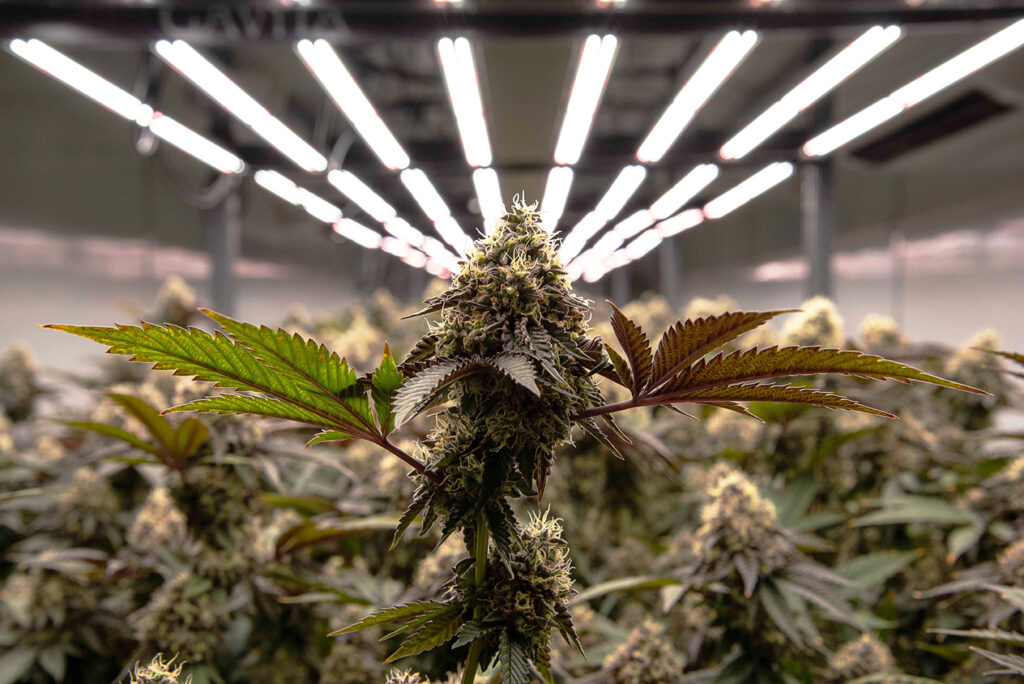Revolutionary Cannabis Solutions: Harnessing the Potential of Shipping Container Farms
With the surge in cannabis cultivation, processing, and retailing following legalization, innovators are seeking novel approaches to overcome traditional industry challenges. From space constraints to unpredictable climates and regulatory hurdles, the quest for efficient, cost-effective, and compliant solutions is driving the adoption of innovative techniques.

Enter the rise of container farms, particularly in the cannabis sector. Repurposed shipping containers are emerging as a game-changer, offering a host of benefits to overcome the limitations of traditional farming methods. Let’s delve into the unique solutions that shipping containers provide for cultivation, production, processing, and retailing in the cannabis industry.
Shipping Containers for Cannabis Cultivation, Production, and Processing
How does it work?
Various companies have repurposed commercial shipping containers to create secure cannabis facilities that meticulously control environmental factors such as air temperature, humidity, CO2 levels, and ventilation. These enclosed containers not only provide a safe and discreet environment but also enable crops to thrive in optimal conditions. These containers, also utilised by some Ontario companies for produce farming, can be deployed in any location with flat, solid ground and access to water and power.
What are the Benefits?
The use of shipping containers in the cannabis industry offers several advantages:
Increased Production: Companies like Delta 9 report significant increases in cannabis production with their ‘grow pods’, which utilise standardised hydroponic growing methodologies. This streamlined approach yields substantial quantities of high-quality cannabis year-round.
Accessibility: Serving as a ‘turnkey’ solution, shipping containers cater to both new and experienced cannabis operators, offering a swift and straightforward setup process requiring minimal resources.
Flexibility: Shipping containers provide unparalleled flexibility in choosing suitable locations, whether urban or rural. Their compatibility and portability simplify transportation and relocation, offering a cost-effective solution for expanding operations.
Environmental Sustainability: Container farms recycle water and utilise up to 90% less water compared to traditional farming methods. Additionally, local production reduces transportation distances, contributing to environmental conservation.
Risk Reduction: Enclosed shipping containers offer a controlled environment that minimizes the risk of crop failure due to pests, mold, and disease. Contamination, if it occurs, is contained to a specific area, reducing product loss.
Cost-Effectiveness: Container farms offer space-efficient solutions, eliminating the need for extensive premises and reducing facility costs. They also facilitate easy expansion, allowing companies to increase production capacity without additional space requirements.
Enhanced Security: Shipping containers meet stringent security requirements mandated by regulatory authorities, providing robust protection for valuable cannabis crops.
Shipping Containers in the Retail Cannabis Market
The container trend extends beyond cultivation and production, disrupting the retail sector as well. For instance, Stackt Market in Toronto has transformed unused land into a vibrant outdoor mall constructed entirely from shipping containers, showcasing over 30 retailers, service providers, and a brewery.
In the cannabis retail sphere, companies like POPCANN are leveraging shipping containers to expand accessibility and reach new markets. These modular cannabis stores, built from reclaimed shipping containers, offer an innovative approach to retailing, allowing legal cannabis to be brought to remote communities, festivals, and unconventional retail environments. Equipped with advanced security technology and immersive customer experiences, these stores are set to redefine the cannabis retail landscape.
